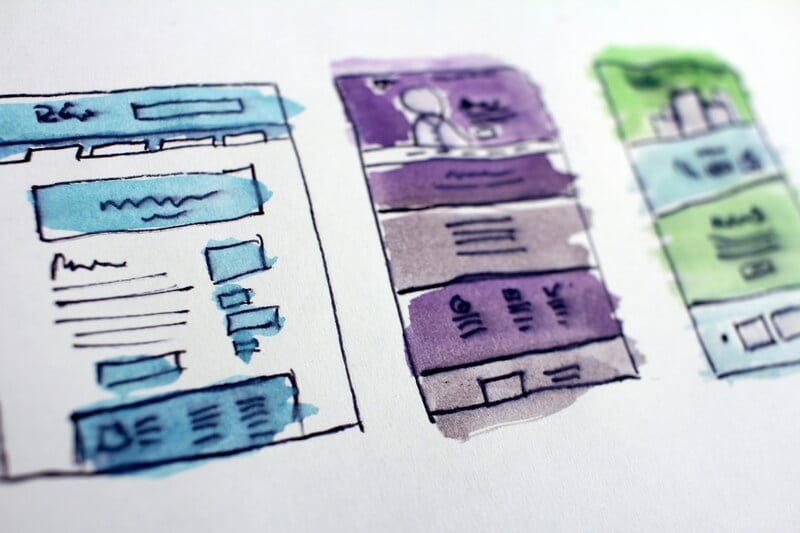From a post of Homer
Imagine a journey through time, where the words spoken by ancient Greeks find a cozy home in the mouths of people today. We’re about to explore some old Greek sayings and their new buddies, proving that Greek words have a magic power—time doesn’t change them much!
- “One swallow (or one cuckoo) does not bring spring.”
- Modern Greek: “Ένα χελιδόνι (ή ένας κούκος) δεν φέρνει την άνοιξη.”
- Ancient Greek: “Μία χελιδὼν ἔαρ οὐ ποιεἶ
Said by Aesop and remained as a proverb used by Aristotle, Stobaeus, and Aristophanes. The version with the cuckoo prevailed.”
- “One hand washes the other.”
- Modern Greek: “Το ένα χέρι νίβει το άλλο.”
- Ancient Greek: “ἁ δὲ χεὶρ τὰν χεῖρα νίζει
A verse by the Pythagorean philosopher and poet Epicharmus.”
- “As you sow, so shall you reap.”
- Modern Greek: “Ό,τι σπείρεις θα θερίσεις.”
- Ancient Greek: “Εί κακά τις σπείραι κακά κέρδια αμήσειν – Hesiod.”
- “It is better to be envied than pitied.”
- Modern Greek: “Κάλλιο να σε ζηλεύουνε παρά να σε λυπούνται.”
- Ancient Greek: “κρέσσον γὰρ οἰκτιρμοῦ φθόνος- Pindar.”
- “The tongue has no bones but breaks bones.”
- Modern Greek: “Η γλώσσα κόκκαλα δεν έχει και κόκκαλα τσακίζει.”
- Ancient Greek: “Ἡ γλῶττα ἀνόστεος μὲν ὀστέα θραύει- Solon.”
- “Experience is the best teacher.”
- Modern Greek: “Έπαθε και έμαθε.”
- Ancient Greek: “τὸν πάθει μάθος- Aeschylus, Agamemnon.”
- “My hair stood on end.”
- Modern Greek: “Σηκώθηκαν οι τρίχες μου.”
- Ancient Greek: “τριχὸς δ᾽ ὀρθίας πλόκαμος ἵσταται – Aeschylus, Seven Against Thebes.”
- “A man is the pillar of the house.”
- Modern Greek: “Ο άνδρας είναι η κολώνα του σπιτιού.”
- Ancient Greek: “Ανήρ, στέγης στῦλον – Aeschylus, Agamemnon.”
- “Hit the wood.”
- Modern Greek: “Χτύπα ξύλο.”
- Ancient Greek: “Ἅπτεσθαι ξύλου – Aristophanes.”
- “Fell over laughing.”
- Modern Greek: “Έπεσαν κάτω απο τα γέλια.”
- Ancient Greek: “ὥστε υπτίους υπό του γέλωτος καταπεσείν – Athenaeus.”
- “Became a theater.”
- Modern Greek: “Έγιναν θέατρο.”
- Ancient Greek: “Εαυτούς εξεθεατρίουν – Polybius.”
- “Don’t confuse me.”
- Modern Greek: “Μη με συγχίζεις.”
- Ancient Greek: “μή μοι σύγχει – Homer.”
- “We’re in deep water.”
- Modern Greek: “Τη βάψαμε.”
- Ancient Greek: “Η ναῦς ἔβαψεν – Euripides, Orestes 705-707. “
βάπτω=βυθίζω στο νέρο. η ναῦς ἔβαψεν = το πλοίο βυθίστηκε.
- “Don’t bother me.”
- Modern Greek: “Μη με σκοτίζεις.”
- Ancient Greek: “Αποσκότισον με – Diogenes to Alexander the Great.”
- “Life became unlivable.”
- Modern Greek: “Έγινε ο βίος αβίωτος.”
- Ancient Greek: “Ἀβίωτον ζῶμεν βίον – Philemon, 4th century BCE.”
- “Bird’s milk.”
- Modern Greek: “Του πουλιού το γάλα.”
- Ancient Greek: “ὀρνίθων γάλα – Plutarch.”
- “You’re talking nonsense!”
- Modern Greek: “Λες τρίχες!”
- Ancient Greek: “Τριχολογείν και τρίχας αναλέγεσθαι – Suidas.”
- “Send it to the crows.”
- Modern Greek: “Άει στον κόρακα.”
- Ancient Greek: “πέμπειν εἰς κόρακας.”
- “I don’t care.”
- Modern Greek: “Δεν με μέλει.”
- Ancient Greek: “οὐδέν μοι μέλει.”
- “You talk too much.”
- Modern Greek: “Πολλά λες.”
- Ancient Greek: “Πολλά λαλεῖς – Heard often in Cyprus.”
- “Go burst!”
- Modern Greek: “Να σκάσεις.”
- Ancient Greek: “Διαρραγείης – Aristophanes.”
- “Every beginning is difficult.”
- Modern Greek: “Κάθε αρχή και δύσκολη.”
- Ancient Greek: “Αρχή δήπου παντός έργου χαλεπωτέρα.”
- “The truth is bitter.”
- Modern Greek: “Η αλήθεια είναι πικρή.”
- Ancient Greek: “ἔχει τι πικρὸν ὁ τῆς ἀληθείας λόγος – Dion.”
- “The truth cannot be hidden.”
- Modern Greek: “Η αλήθεια δεν κρύβεται.”
- Ancient Greek: “Ἀδύνατον τ’ ἀληθές λαθεῖν – Menander.”
- “He fears even his own shadow.”
- Modern Greek: “Φοβάται και την σκιά του.”
- Ancient Greek: “τὴν αὐτοῦ σκιὰν δέδοικεν – Aristophanes, Fragments 62.”
- “Even if you wash the Ethiopian.”
- Modern Greek: “Τον αράπη κι αν τον πλένεις.”
- Ancient Greek: “Αἰθίοπα σμήχεις – Plutarch.”
- “No work is shameful (unemployment is shameful).”
- Modern Greek: “Καμιά δουλειά δεν είναι ντροπή (η αεργία είναι ντροπή).”
- Ancient Greek: “Έργον δ’ ουδέν όνειδος, (αεργίη δε τ’ όνειδος) – Hesiod.”
- “Building on sand.”
- Modern Greek: “Χτίζεις στην άμμο.”
- Ancient Greek: “Εἰς ψάμμον οἰκοδομεῖς – Plutarch.”
- “Take advantage while you can.”
- Modern Greek: “Παρ’ το αυγό και κούρευτο.”
- Ancient Greek: “Ωον τίλλεις – Plutarch.”
- “As you see me, I see myself.”
- Modern Greek: “Όπως σε βλέπω και με βλέπεις.”
- Ancient Greek: “Ὢςπερ εισοράς εμέ – Sophocles.”
- “My knees gave way.”
- Modern Greek: “Μου λύθηκαν τα γόνατα.”
- Ancient Greek: “Λύεται γούνατα – Homer.”
- “I’ll show you who I am (threat).”
- Modern Greek: “Θα σου δείξω εγώ ποιος είμαι.”
- Ancient Greek: “Ἐγώ αυτώ δείξω τις ειμί – Epictetus, Discourses 3.2.10.”
- “Don’t you want to hang yourself?”
- Modern Greek: “Δεν πας να κρεμαστείς;”
- Ancient Greek: “Ούκ απάγξη; – Epictetus, Discourses 3.1.32.”
- “Acts as if he killed his father (today we say, as if he killed his mother).”
- Modern Greek: “Κάνει σαν να του σκότωσε τον πατέρα.”
- Ancient Greek: “Αν ούν εν τούτοις πλανηθώ μη τι τον πατέρα απέκτεινα – Epictetus, Discourses 1.7.31.”
- “Put your hand in the fire.”
- Modern Greek: “Βάζω το χέρι στην φωτιά.”
- Ancient Greek: “Χείρα τ’ εν ηγάνω βαλείν (ηγάνω=στο τηγάνι) – Anacreon Fragmenta Fr.91.”
- “We tangled our legs.”
- Modern Greek: “Μπλέξαμε τα μπούτια μας.”
- Ancient Greek: “Πλέξαντες μηροίσι πέρι μηρούς – Anacreon Fragmenta, Fr.91.”
These expressions offer a glimpse into the rich linguistic and cultural heritage of the Greek people, resonating across time and generations.
So, there you have it! The Greek language is like a superhero—it doesn’t get old. From way back when people wore togas to now when we have smartphones, Greek words stayed strong. It’s like a secret code passed down through centuries, reminding us that words can be forever young. The language dances through time, and we’re all part of this cool, never-ending linguistic party!




